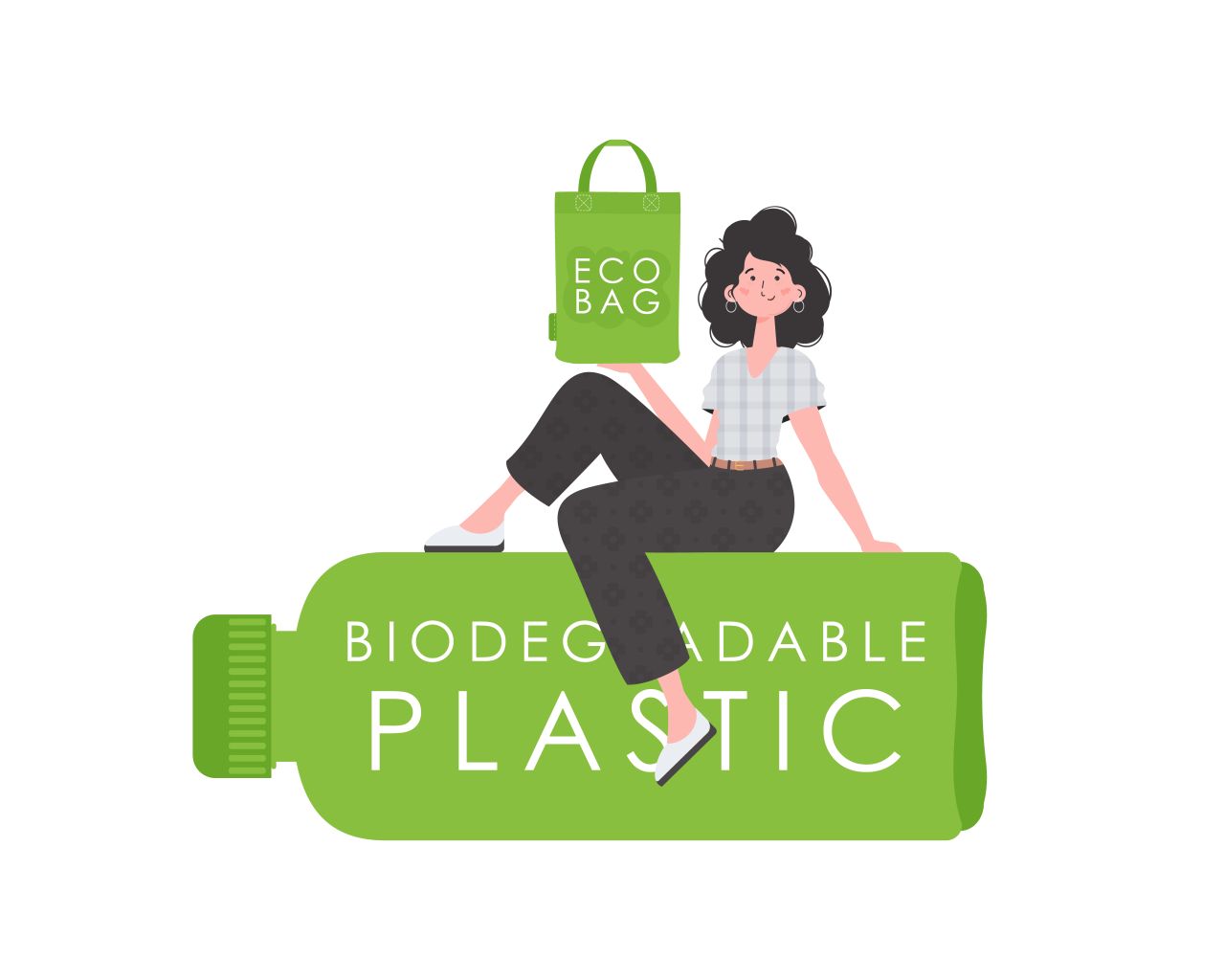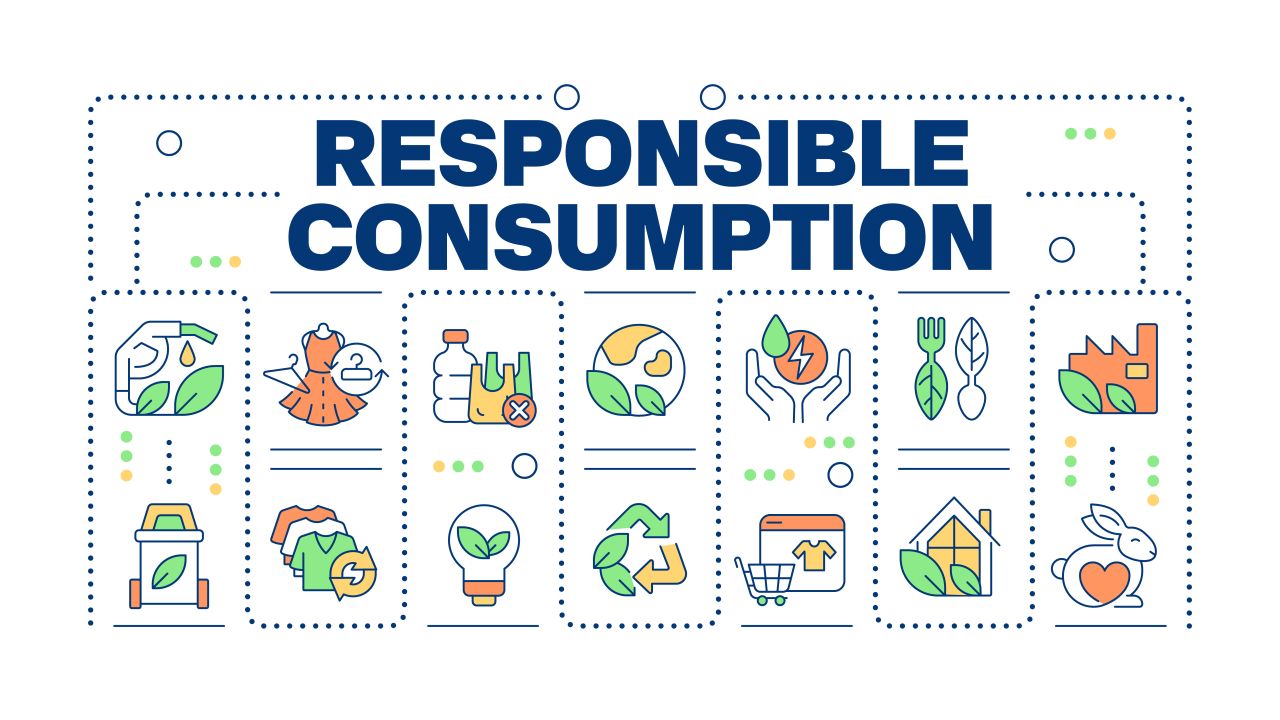The Rise of the Conscious Consumer: How Consumer Demand is Shaping Business Sustainability


Cut through the green tape
We don't push agendas. At Net Zero Compare, we cut through the hype and fear to deliver the straightforward facts you need for making informed decisions on green products and services. Whether motivated by compliance, customer demands, or a real passion for the environment, you’re welcome here. We provide reliable information—why you seek it is not our concern.
In recent years, a significant shift has emerged in the marketplace—a new wave of consumers is shaping the way companies operate and produce. These individuals, often referred to as "conscious consumers," prioritize sustainability, ethical production, and social responsibility in their purchasing decisions. The rise of the conscious consumer is creating ripple effects across industries, forcing companies to reevaluate their practices and prioritize sustainability. But what exactly is driving this shift, and how are businesses responding?
The Shift Towards Conscious Consumption
Awareness and Education
Thanks to the proliferation of digital media and the availability of information, consumers now have unprecedented access to data about the origins of products, the conditions under which they are made, and the environmental and social impact of their production. Documentaries, investigative journalism, and social media campaigns have shined a spotlight on issues such as labor exploitation, environmental degradation, and wasteful production practices.
This accessibility to information has created a more educated consumer base, especially among Millennials and Generation Z. These generations are particularly attuned to global issues like climate change, biodiversity loss, income inequality, and human rights violations, and they are actively looking for ways to make a positive impact through their purchases.
Ethical and Environmental Concerns
Environmental degradation has become a major concern for modern consumers. The devastating effects of climate change, deforestation, pollution, and unsustainable agricultural practices are now widely understood, thanks to high-profile environmental movements and ongoing coverage of natural disasters linked to human activity. In response, consumers are increasingly demanding products that minimize harm to the environment, from reducing carbon footprints to supporting regenerative practices.
Beyond the environment, social justice has also become a central issue for conscious consumers. They are more likely to reject brands that exploit workers, use child labour, or maintain unsafe working conditions in favour of companies that prioritize fair wages, worker rights, and safe labour environments. Certifications like Fair Trade, B Corp, and organic labels have become symbols of trust for consumers who seek products aligned with their ethical values.
Technology as a Catalyst
The rise of e-commerce and digital platforms has also accelerated the conscious consumption movement. Online shopping and social media have made it easier for consumers to research products, share their opinions, and connect with like-minded individuals. This shift has created communities of conscious consumers who discuss and advocate for sustainable brands, amplifying their voices across the globe.
In addition, companies are using technology to improve the traceability of their supply chains, providing customers with insights into every step of a product’s journey. Blockchain technology, for example, allows companies to track raw materials from origin to final product, assuring consumers that their purchases align with ethical and environmental standards.
Values-Based Purchasing Decisions
Today's conscious consumers are making values-based purchasing decisions, favouring brands that are transparent and socially responsible. This has led to a demand for businesses to go beyond simply selling products—they must offer a sense of purpose and alignment with global challenges. For many consumers, it’s not enough for a company to produce quality goods; they want to support brands that reflect their own values and contribute positively to society.
This shift towards values-based purchasing also manifests in the willingness of consumers to pay a premium for products that are sustainably and ethically produced. A growing number of consumers are making long-term investments in products designed to last, rather than opting for cheaper, disposable alternatives. This shift is not only changing consumer behaviour but is also redefining what success looks like for businesses.
The Power of Consumer Demand
As conscious consumers become more vocal and intentional with their purchases, companies are feeling the pressure. This consumer demand is no longer a niche market; it’s becoming mainstream. Studies show that more than half of consumers globally are willing to pay a premium for products that are sustainably produced or sourced from ethical practices. In response, businesses have little choice but to align their values with those of their customers if they wish to remain competitive.
One powerful example of this demand in action is the global fashion industry. Fast fashion has been heavily criticized for its negative environmental and social impact, from excessive water usage to exploitative labor practices. Conscious consumers have responded by supporting sustainable fashion brands that prioritize eco-friendly materials, fair trade, and slow fashion principles. In turn, major fashion companies are beginning to integrate sustainable practices, such as using recycled materials or launching eco-friendly clothing lines, to meet these consumer expectations.

How Companies are Adapting: Real-World Examples
1. Sustainable Sourcing and Production
One of the most significant areas of adaptation has been in sourcing raw materials and making production processes more sustainable. Many companies are now focusing on reducing their environmental footprint by using renewable resources, reducing waste, and sourcing materials ethically.
Patagonia: Known for its commitment to environmental activism, Patagonia has set a high standard for sustainable sourcing and production. The outdoor clothing company uses organic cotton, recycled polyester, and wool in its products while minimizing its carbon footprint. Patagonia is also known for its "Worn Wear" initiative, encouraging customers to buy used clothing, repair old garments, and reduce consumption. Their commitment to fair labour practices and transparent supply chains has made them a leader in conscious business practices.
Unilever: The multinational consumer goods company, which owns brands like Dove, Ben & Jerry’s, and Seventh Generation, has committed to making all of its plastic packaging reusable, recyclable, or compostable by 2025. Unilever has also introduced its Sustainable Living Plan, which focuses on reducing environmental impact through sustainable sourcing, cutting emissions, and increasing the use of renewable energy in manufacturing.
2. Transparency and Accountability
Transparency has become a key priority for businesses, as consumers demand to know where products come from, how they are made, and under what conditions. To build trust, companies are increasingly providing detailed reports on their sustainability initiatives and labour practices.
Everlane: The fashion brand Everlane is known for its radical transparency approach. The company openly shares the true cost of production for each item, detailing the expenses for materials, labour, and transport. Everlane also provides insight into the factories it partners with, ensuring that workers are paid fair wages and operate in safe environments. This transparency has helped Everlane build a loyal customer base that values ethics and accountability in fashion.
Nestlé: As one of the world’s largest food and beverage companies, Nestlé has made strides toward greater transparency in its supply chain. The company uses blockchain technology to trace key ingredients, such as coffee and cocoa, from farm to store. Nestlé's use of blockchain gives consumers the ability to access detailed information about where their food comes from and how it is produced, ensuring ethical sourcing and environmentally responsible practices.
3. Sustainable Packaging and Product Innovation
The rise of the conscious consumer has pushed many companies to rethink their packaging and develop more sustainable, eco-friendly products. Single-use plastics, in particular, have been a major target, with many companies committing to reducing or eliminating their reliance on plastics.
Lush: The cosmetics company Lush has long been a pioneer in sustainable packaging. Known for its "naked" products, Lush offers many items such as shampoo bars, soaps, and conditioners without any packaging at all. The company also encourages customers to return packaging for recycling, and it has a strong commitment to eliminating waste and sourcing ethical, cruelty-free ingredients.
IKEA: The Swedish furniture giant is taking significant steps towards becoming a fully sustainable business by 2030. IKEA has made bold commitments to use only renewable or recycled materials in its products and packaging. It has also developed innovative circular economy initiatives, such as buy-back and recycling programs, where customers can return used furniture for resale or repurposing. IKEA is also reducing its reliance on single-use plastic, replacing it with more eco-friendly alternatives.
4. Corporate Social Responsibility and Ethical Labor Practices
Many companies are incorporating corporate social responsibility (CSR) programs into their business models to address issues such as worker rights, fair trade, and community impact.
TOMS Shoes: TOMS became famous for its "One for One" business model, where for every pair of shoes purchased, another pair was donated to a child in need. The company has since evolved its CSR initiatives to include investments in clean water, safe birth kits, and eye care programs. TOMS also places a strong emphasis on ethical production, ensuring that the factories they work with maintain fair wages and safe working conditions.
Ben & Jerry’s: The ice cream company has long championed social justice causes, from supporting LGBTQ+ rights to fighting climate change. Ben & Jerry’s sources Fairtrade-certified ingredients and ensures that all farmers and workers in its supply chain are paid fair wages and operate in safe conditions. The company is also a Certified B Corporation, meaning it meets rigorous standards of social and environmental performance, accountability, and transparency.
5. Innovation and Technology for Sustainability
Technology is playing a critical role in helping companies reduce their environmental impact and improve sustainability. From renewable energy adoption to supply chain tracking, companies are leveraging innovation to meet the demands of conscious consumers.
Microsoft: Microsoft has made a bold commitment to become carbon-negative by 2030, meaning it will remove more carbon from the atmosphere than it emits. To achieve this, the company is investing heavily in technology and innovation. Microsoft is developing advanced artificial intelligence (AI) tools to help other organizations track and reduce their carbon footprints. Additionally, the company is expanding its use of renewable energy to power its data centres and cloud services, and it has launched a $1 billion climate innovation fund to accelerate the development of carbon reduction and removal technologies.
Apple: Apple has made significant strides in sustainability by committing to making its entire supply chain carbon-neutral by 2030. The company already powers all of its offices, stores, and data centres with 100% renewable energy, and it has introduced recycling programs to recover valuable materials from old devices. Apple’s "Daisy" robot, for example, can disassemble iPhones to recover and reuse rare metals, helping to reduce e-waste.

The Future of Conscious Consumption
As the movement toward conscious consumption grows, we are likely to see further advancements in sustainable business practices. Governments and regulators are also playing a role, with new environmental and ethical regulations being implemented around the world. Companies that invest in sustainable innovation, transparency, and ethical practices are better positioned to thrive in this evolving marketplace.
The rise of the conscious consumer is not just a fleeting trend—it’s a powerful force that is reshaping industries, and encouraging companies to adopt more responsible and sustainable practices. Ultimately, this movement is about creating a more ethical, environmentally conscious, and socially responsible economy, benefiting both the planet and future generations.

More related content

The EU's Omnibus Proposal: A Deep Dive

Carbon Accounting vs. Climate Risk Management - What's the Difference

Industry Classification Systems used in the Green Economy
